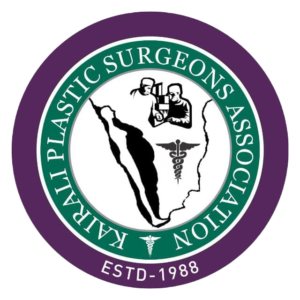
Since the nose is the most prominent facial feature, it plays a major role in determining how we look.
A nose that is too large or disproportionate can disrupt the symmetry of an otherwise pleasant appearance. A person who is unhappy with his or her nose often spends a great deal of time thinking about changing it. A procedure called rhinoplasty makes aesthetic and structural changes of the nose possible.
The nose is corrected in both profile and frontal views. Your plastic surgeon will evaluate the structure of your nose in relation to the shape of your face, the thickness of your skin, and your age. Your doctor will work with you to try to make your nose complement your other facial features.
About the Procedure
Most surgeons perform rhinoplasty using a closed technique in which the incisions are hidden inside the nose. Through these small incisions, using special lighting and instruments, cartilage and bone are adjusted to make the nose better fit the face.
Some surgeons prefer an open- tip technique for rhinoplasty. With this technique, an incision is made across the columella, the vertical strip of tissue separating the nostrils. While the open- tip technique may allow for a more direct view of the nasal structures, it does require an external incision.
You can choose to reduce or increase the size of your nose, change the tip or the bridge, narrow the span of the nostrils, or change the angle between your nose and your upper lip.
When the surgery is complete, a splint will be applied to keep the nasal structures immobile and help the nose maintain its new shape.
Rhinoplasty can be performed in an outpatient surgical facility or a hospital. Complex procedures may require a short inpatient stay. It can be performed under local or general anesthesia, depending on the extent of the procedure and on what you and your surgeon prefer. With local anesthesia, you’ll usually be lightly sedated. Your nose and the surrounding area will be numbed; you’ll be awake during the surgery, but relaxed and insensitive to pain.
The procedure usually takes an hour or two, though complicated procedures may take longer. Rhinoplasty can also be performed in combination with other procedures designed to relieve nasal obstruction.
Rhinoplasty is not usually advised until a person has reached the mid-teenage years, when growth of the nose is nearly complete. This usually means 14 to 15 years of age for a girl and 16 for a boy.
Recovery and Healing
Nasal surgery produces minimal discomfort that can usually be controlled by pain medication. You will need to keep your head elevated and apply cold compresses to your eyes to reduce postoperative bruising and swelling.
A little bleeding is common during the first few days following surgery, and you may continue to feel some stuffiness for several weeks.
If you have nasal packing, it will be removed after a few days and you’ll feel much more comfortable. By the end of one week, or occasionally two weeks, all dressings, splints, and stitches should be removed.
Avoid hitting or rubbing your nose, or getting it sunburned, for six months. You must remember that for the initial period after surgery your nose will be more sensitive to the sun and you will have to take special precautions. Be gentle when washing your face and hair or using cosmetics.
Most rhinoplasty patients are up and about within two days, and able to return to school or sedentary work a week or so following surgery. It will be several weeks, however, before you’re entirely up to speed.
The early results of this surgery are evident in two to three weeks. However, you will continue to notice an improvement in the contour and form of your nose for six to 12 months, as most of the swelling disappears. Healing is a slow and gradual process.
Risks
Pain associated with the surgery is minimal to moderate and when necessary can be controlled with oral medication. Complications associated with rhinoplasty are rare. Nevertheless, there is always a possibility of infection or nosebleed. These can be minimized by carefully following your doctor’s instructions. When patients are unhappy with their result after surgery, it usually stems from either a miscommunication between the doctor and patient and/or an overzealous correction of the problem. As for scarring, when rhinoplasty is performed from inside the nose, there is no visible scarring at all. When an open technique is used, there are small scars on the columella that are usually inconspicuous, but may be noticeable.
